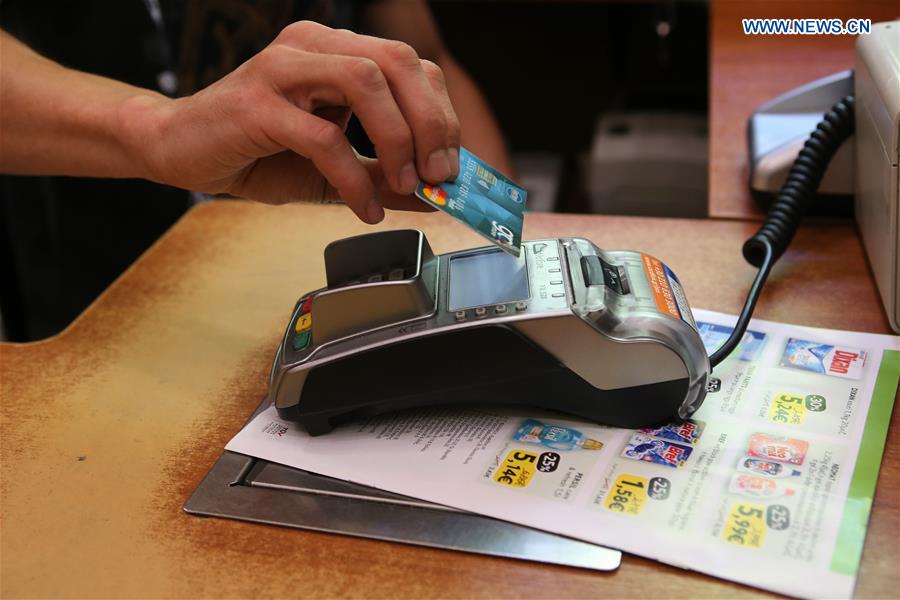 ?
?
An employee holds a credit card in a shop in Athens, Greece, on June 30, 2018. The use of plastic money and electronic transactions in Greece have soared after the capital controls, according to a survey released in Athens, as two years since the introduction of the measure were marked on Thursday. (Xinhua/Marios Lolos)
by Kostas Zaligkas
ATHENS, June 30 (Xinhua)-- As Greece is loosening its capital controls imposed in 2015 to avert the collapse of banking system amid debt crisis, Greeks are increasingly using bank cards for tax avoidance rather than cash withdrawal limits.
According to recent figures from the central Bank of Greece, more than 16.3 million bank cards, credit, debit, or prepaid, are being used in Greece, which means almost two cards for every adult living in the country.
In 2017, about 30 percent more prepaid cards were issued compared with 2016, says the report.
Transactions via cards also increased in the meantime. Figures showed that Greeks paid 60 billion euros (70.2 billion U.S. dollars) with their cards in 2017, 5 billion euros more over 2016.
Debit cards are the most used, as their share of trading last year reached 87 percent, according to the central bank.
Greeks started to use cards more in 2015, when a cash withdrawal limit was imposed and forced Greeks to use cards for small transactions. The average value of card transactions was 82 euros in 2017, while in 2016 it was 108 euros and 139 euros in 2015.
As Greek economy improved, the capital controls relaxed and now stands at 5,000 euros a month.
However, most Greeks continue to use cards quite often in their purchases for the reasons shifted from cash controls to tax avoidance.
Under the latest taxation law, taxpayers, with the exception of the elderly, are obliged to make electronic transactions, or they will face higher tax rates.
The required ratio depends on their total income in tax declarations, ranging from 10 percent to 25 percent.
The law was drafted as part of measures to combat tax evasion. The use of cards has led to an increase in VAT receipts and corporate income taxes, according to data. Therefore authorities encourage the further use of cards.
Under the new law, the Finance Ministry has also set a cash transaction limit of 500 euros and provides a fine of 100 euros for both the buyer and the seller who cross it.
Inter-business transactions also have a cash limit of 500 euros, but without a fine. (1 euro=1.17 U.S. dollars)















